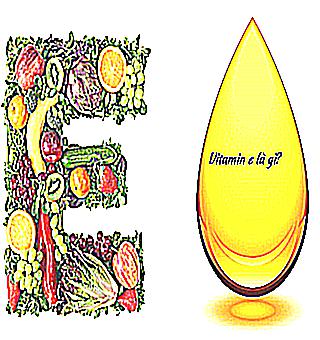Home >
Erectile Dysfunction >
Vitamin E for impotence
Vitamin E for impotence

Vitamin E (tocopherol) is one of the substances necessary for the human body to maintain a high degree of efficiency and maintain youth. The components of the chemical compound slow down the oxidative processes that occur under the influence of free radicals.
By maintaining a normal vitamin E content in the body, it is possible to protect cells from premature aging, increase vascular elasticity and maintain a healthy erection.
Vitamin E Functions
Long-term studies of the functional purpose of the vitamin helped to identify its ability to:
- improving the circulatory quality of blood, normalizing the level of clotting
- accelerating the regeneration of the epidermis, as well as tissues of internal organs and skeletal system
- treatment of fibrotic breast diseases
- lowering blood pressure
- preventing visual pathologies, such as cataracts
- improving a person's physical condition
- eliminating convulsive seizures, limb tremors
- strengthening walls of capillaries and blood vessels
Vitamin E is the main component of anti-aging drugs. Its chemical constituents inhibit the mechanisms of free radical formation and lipid oxidation. In addition, the substance protects other fat-soluble vitamins from destruction by oxygen. Tocopherol helps maintain skin elasticity and prevents the formation of age spots. Cosmetologists know about the participation of vitamin E in the mechanisms of the formation of collagen and elastic fibers of the intercellular substance. Tocopherol is an essential ingredient in creams, serums and extracts for treating wrinkles and other cosmetic imperfections. The presence of a normal amount of vitamin E in the body leads to:
- a gradual increase in the concentration of antioxidant nutrients
- an increase in the activity of the organs of the reproductive system
- an increase in immunity
- a decrease in the risk of developing cancer
Vitamin E is also involved in the synthesis of hormones, a deficiency of this chemical compound can provoke a disruption in the functioning of the organs of the endocrine system. It has a positive effect on the activity of the sex glands, restores the functions of the reproductive system. Fortified drugs are prescribed during pregnancy to normalize fetal development processes. Tocopherol is required to maintain high mental alertness beyond old age. Taking the vitamin helps to avoid the destruction of the protein structures of the nervous systems, the onset of senile dementia and memory disorders.
Sources of Vitamin E
Adequate amounts of vitamin E can be found in:
- vegetable oils made from sunflower and flax, olives and soy
- nuts, especially almonds and peanuts
- vegetables and fruits, such as apples< / li>
- milk, egg yolks and liver
- legumes and cereals (oatmeal, soy and wheat)
- herbs (raspberry leaves and nettles, rose hips and dandelions)
- white bread
Symptoms of hypovitaminosis
A decrease in the normal level of vitamin E in the body can have the following negative health effects:
- muscular and skeletal dystrophy
- deposition of calcium salts in tissues
- fatty degeneration, necrotic changes in the liver, decreased glycogen content
- impaired reproductive functions organism
- damage to the heart muscle
Indications
Most people do not need to take vitamin E every day, since a balanced diet ensures that a sufficient amount of the substance is supplied to the body. Doctors prescribe to patients a regular intake of tocopherol in case of:
- hypovitaminosis
- increased physical and mental stress
- systematic menstrual irregularities
- diseases of the ligamentous and muscular apparatus
- occurrence threatened miscarriage
- epilepsy
- testicular dysfunction
- degenerative and proliferative changes in the articular tissue
- psoriasis development
- spasms peripheral vascular
- detection of asthenic, amyotrophic lateral syndrome
The dosage of vitamin supplements is reduced if the patient is diagnosed with a high risk of thromboembolism, severe cardiosclerosis, or myocardial infarction.
Side effects
With excessive use and the presence of hypersensitivity, preparations with the addition of vitamin E can provoke the onset of:
- acute allergic reactions, in particular, itching, redness and burning of the skin, increased lacrimation
- epigastric pain
- dizziness and migraine
Exceeding the normal plasma concentration of tocopherol leads to flatulence and diarrhea, nausea and vomiting, and increased blood pressure.



























